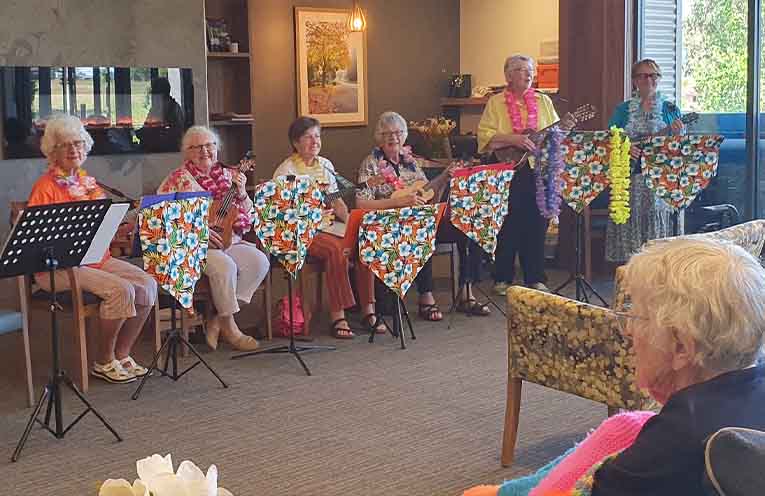THE GLOUCESTER U3A Ukulele Group recently returned to Mirrabooka Place residential aged care home to perform for residents, where their efforts were well received.
The benefits of music therapy for people living with dementia and other conditions such as stroke and Parkinson’s disease are increasingly becoming recognised.
Published in the Australian Journal of Dementia Care, researchers from the University of Melbourne found that, “For people living with dementia, music therapy can improve mood, memory and cognition, reduce depression, anxiety and agitation, as well as support engagement and social connection.
“Music can help those living with dementia to recall personal memories and strengthen identity.”
Leonie Benson, a ukulele group member and regular visitor to Mirrabooka, has seen firsthand the impact of music on memory.
She recalls that one Christmas, although her mother’s speech was lost to Alzheimer’s, her singing voice remained.
“When I started singing ‘Once in Royal David’s City’ my mother sang along.
“I found it difficult to continue as it was such an emotional moment.
“In the past I would sing in church with my mother who had a lovely singing voice.
“Singing was in her brain.”
Music has a unique ability to reach parts of the brain that remain intact, even as dementia progresses.
This is because music engages multiple areas of the brain, including those linked to emotions and long-term memory.
Researchers emphasise that family members who know their loved one well are best placed to select the music linked to treasured memories.
By Marilyn SANDERSON




